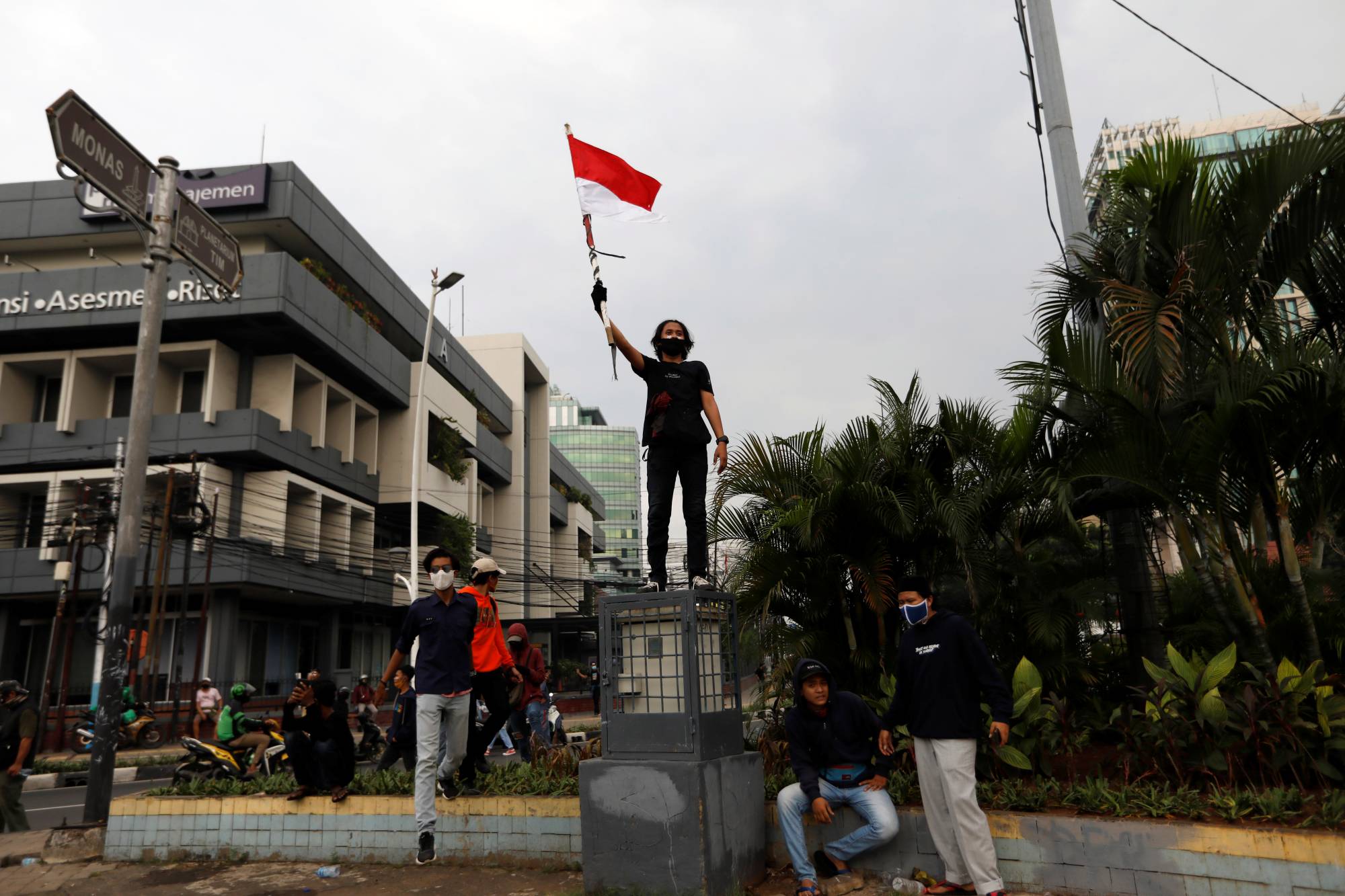Indonesia’s President Joko Widodo has taken a big gamble. A key component of the 905-page omnibus law passed last week chisels away at the country’s wall of labor protections, making it a win for employers and investors. In response, tens of thousands of protesters have taken to the streets. Some have turned violent. While few politicians would be bold enough to take on labor reform with the economy buckling beneath a pandemic, Jokowi should stick to his guns. These changes are sorely needed and he is running out of time.
The legislation reduces the steep severance pay owed by employers, while some forthcoming regulations could make contract workers more attractive relative to full-time staff. Union leaders and provincial political chiefs have urged Jokowi, as the president is known, to rescind or soften parts of the law, which contains a kitchen sink of other provisions. Yet few, if any, countries in Asia have firing costs as high as Indonesia, or such complicated procedures to calculate severance. So while the initiatives aren’t perfect, they do mark a step forward. (Investors, for one, responded positively). With a young population, a growing middle class and plenty of natural resources, Indonesia ought to be an economic star. But growth was stuck at around 5% before the pandemic. Now, thanks to COVID-19, gross domestic product will likely contract this year for the first time since the Asian financial crisis.
That’s why capital needs a win right now. Foreigners have been retreating from the bond market, and now hold about 27% of the country’s debt, down from as high as 39% at the start of the year. That’s a problem, given the increase in borrowing required to fund coronavirus-relief spending. Indonesia also suffers from a persistent current-account deficit. The rupiah, meanwhile, was Asia’s worst performing currency last quarter, buffeted by communications snafus that raised questions about the independence of the central bank and how long it will have to monetize the budget.



















With your current subscription plan you can comment on stories. However, before writing your first comment, please create a display name in the Profile section of your subscriber account page.